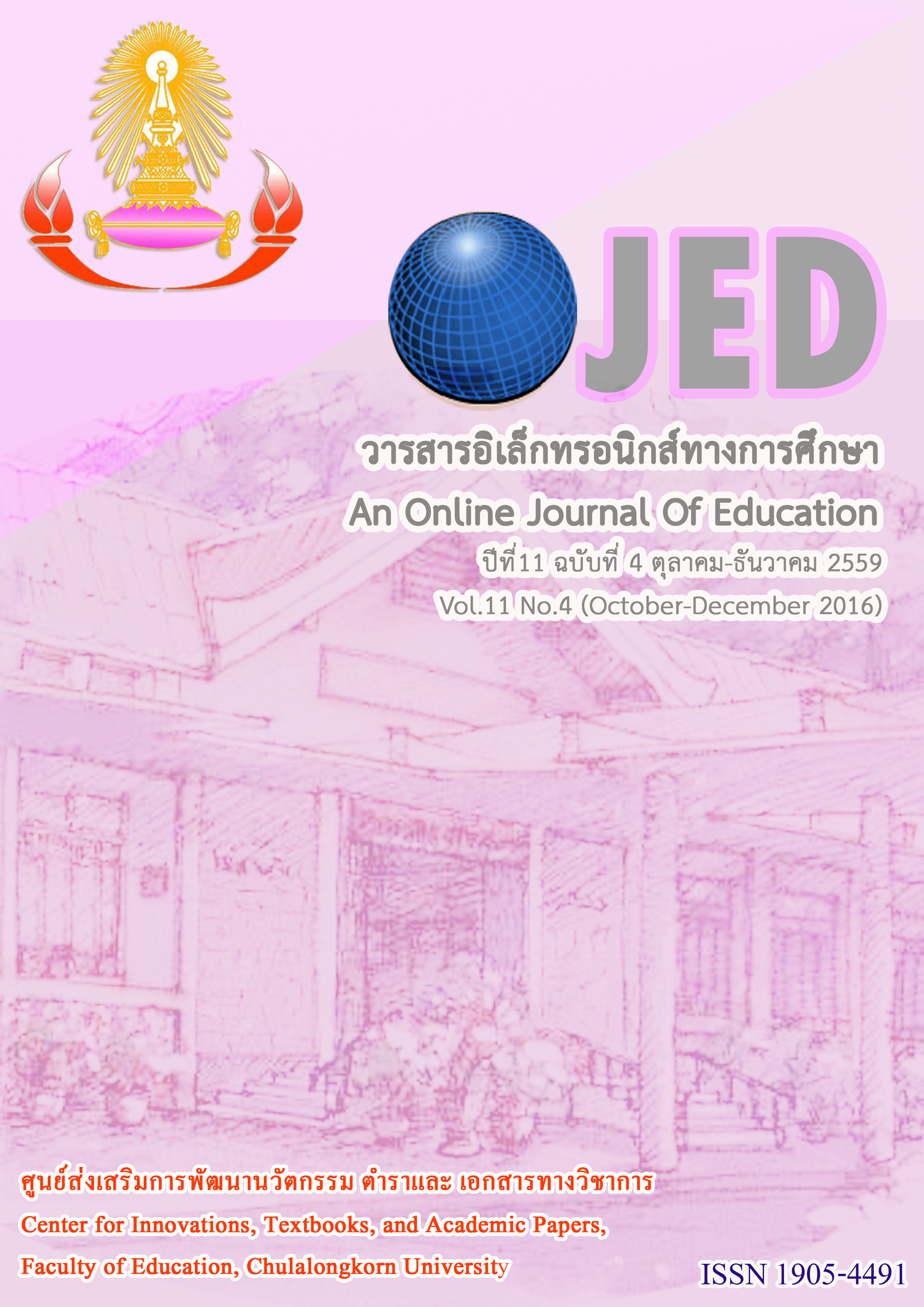ปฏิสัมพันธ์ระหว่างวิธีการประเมินตนเองและความสามารถทางวิทยาศาสตร์ที่มีต่อ พัฒนาการทักษะปฏิบัติการทดลองของนักเรียน THE INTERACTION BETWEEN SELF ASSESSMENT METHODS AND SCIENCE ABILITY ON EXPERIMENTAL SKILL DEVELOPMENT OF STUDENTS
Keywords:
SELF ASSESSMENT, EXPERIMENTAL SKILL, SELF ASSESSMENT METHODSAbstract
Abstract
The purpose of this research were: 1) to compare experimental skill development of student at different ability levels assessing themselves by using methods, and 2) to study the interaction between self assessment method and science ability levels on experimental skill development. Samples were 90 eighth grade students divided into three science ability levels, i.e., excellent, moderate and poor, each with 30 students. The students in each science ability levels assessed themselves using three different methods, i.e., scoring rubric, double layer rubric and general method. Data were analyzed by using one-way repeated measure ANOVA and two-way ANOVA.
Findings were as follows: 1) Experimental skill of students with excellent ability assessing themselves by using scoring rubric was higher than students assessing themselves by using double layer rubric and those assessing themselves by using general method at .01 statistically significant level. Experimental skill of students with moderate ability assessing themselves by using double layer rubric was higher than students assessing themselves by using scoring rubric and those assessing themselves by using general method at .01 statistically significant level. Experimental skill of students with poor ability assessing themselves by using scoring rubric and double layer rubric was higher than students assessing themselves by using general method at .01 statistically significant level. 2) There was an interaction between self assessment methods and science ability levels on experimental skill development of students at the statistically significant level of .01




